Living more eco-friendly can seem overwhelming, but small steps can make a big difference! Share how you’re taking action to care for our earth for a chance to win prizes.
Earth Day is on April 22! We invite you to participate in our Earth Month Contest through the end of the month (April 30).
CONTEST RULES
- Post a photo on Facebook or Instagram of you completing an earth-friendly act. Find ideas in the checklist below.
- Tag our account AND include the hashtag #CoreGoodsEarthMonth (we are @coregoods on Facebook and @core.goods on Instagram)
- Earn one entry for each post you share to win prizes! We’ll pick five winners of an eco-friendly item, like a tote bag or garden seeds.
CHECKLIST
- Shop with your own containers and/or bags: Bring your own container for using the bulk bins, use a cloth produce bag, or bring your own tote bag for your groceries.
- Bring a reusable water bottle on the go: Instead of choosing a plastic, single use bottle of water, use your own reusable bottle. This could be as fancy as a insulated bottle, or as simple as a mason jar.
- Use a reusable mug or thermos at the coffee shop: Skip the paper cup with a plastic lid or plastic cup with a straw, and use your own thermos or reusable cup with a straw instead.
- Refuse a straw at a restaurant: When ordering your drink, politely ask for no straw. Drink directly from the cup or use your own stainless steel or glass straw.
- Use a reusable container restaurant leftovers: Restaurants often have styrofoam or plastic containers. Bring your own washable container to use. You can often find small containers that fit right into a purse.
- Pick up litter or participate in a local clean-up day: Keep our community beautiful and protect wildlife by picking up litter. This can be as simple as picking up trash you pass on your walk during your lunch break, or as involved as organizing a clean-up effort or attending one locally.
- Use cloth rags instead of paper towels and napkins: More than 13 billion pounds of paper towels are used each year in the USA. Instead of paper, choose a cloth rag that you can wash. It doesn’t have to be fancy–even a cut up t-shirt will work.
- Fix something that’s broken, instead of throwing it away: Most people think to throw an item away as soon as something is wrong with it. Before getting rid of it, find out if there’s a way to fix it. Like repairing an electronic or sewing a piece of clothing.
- Replace light bulbs with energy efficient ones: According to the US Department of energy, rapid adoption of LED bulbs would save hundreds of millions of tons of greenhouse gases from entering the atmosphere. Replacing your light bulbs could save you money while also saving the planet (learn more).
- Use eco-friendly cleaning products: Most common cleaning products can have a huge impact on your health (as well as your pets and children) and the environment. Purchase from a brand that doesn’t use harsh chemicals or make your own products.
- Make broth from vegetable scraps: Don’t toss those carrot peels, onion skins, and celery leaves out! Use them to make flavorful vegetable broth.
- Start a compost bin or add to your current bin: Instead of sending vegetable scraps, coffee grinds, egg shells, and other biodegradable items to the landfill, help them decompose naturally by composting.
- Unplug electronics: Even some electronics that are turned off can continue using energy. If you are not using an electronic, even something small like a phone charger, try to unplug it. This saves money and the earth! Learn more about how saving energy helps the environment here.
- Conserve water: When you don’t waste water, you can save money, divert less water from our rivers, bays, and estuaries, reduce water and wastewater treatment costs, and reduce the amount of energy used to treat, pump, and heat water. Try to take shorter showers, reuse water from washing produce to water plants, fix a leaky sink, and more. Find other ideas here.
- Grow your own food: You don’t have to worry about where your food comes from and what chemicals are used to grow it if you’re picking it out of your yard or from potted plants on your porch. This also saves resources used to transport food to grocery stores. New to gardening? Check out these tips for beginners.
- Plant a tree: Trees are like the “lungs of the planet.” They breathe in CO2 and breathe out oxygen, reduce ozone levels, provide habitat for animals, and more. There are many environment benefits of planting trees.
- Walk or bike somewhere instead of driving: Save gas money and avoid pollution by enjoying the outdoors and taking a walk or bike ride. Being outside also has many mental health benefits.
- Buy local: Buying local keeps jobs in our area, helps the local economy, keep small businesses open and the community thriving, and requires less transportation, which helps the environment. Plus, local food is often more fresh and supports the farmers that are growing it right in our community!
- Shop secondhand: Before buying something new, consider if you could find it at a thrift store or from a friend. There are many items that already exist and purchasing used instead of new cuts down on manufacturing demands and keeps more items out of the landfill. Plus, there are many local thrift stores that give back to the community.
- Borrow instead of buy: Many of us tend to own items that we don’t use very often. Instead of purchasing something you need, see if it’s an item you can borrow from a family member, friend, or neighbor. This can include a variety of items, like leaf blowers, crockpots, clothes, books, items for an event, and more.
- Eat a meatless meal: The production, processing, and distribution of meat requires huge amounts of pesticides, fertilizer, fuel, feed, and water while releasing greenhouse gases, manure, and a range of toxic chemicals into our air and water. Even eating one meatless meal a week can make a difference. Learn more about the impact of meat on the environment and find some delicious meatless recipes. If you’d rather not give up meat, there are many great local farms in our region who treat their animals and land well. We sell from several farms in our region–Gruber Farms, Meadow Lark Farms, and Clarion Farms Beef–as well as Wild for Salmon.
- Recycle: After reducing and reusing as much as possible, make sure to recycle any items you can. The Environmental Protection Agency estimates that 75% of waste is recyclable, yet only close to 34% of it is recycled. Be sure to check with your recycling facility about what can be recycled in order to avoid contamination. Venango County has a recycling center in Franklin. Learn more here & learn about recycling and how to do it properly here.
EXAMPLES OF ENTRIES
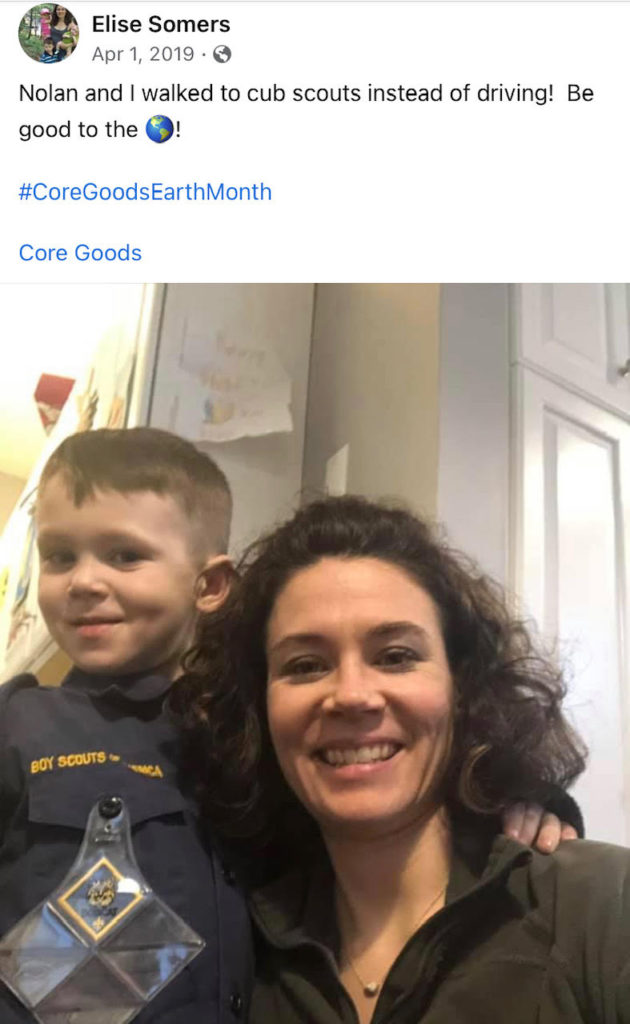
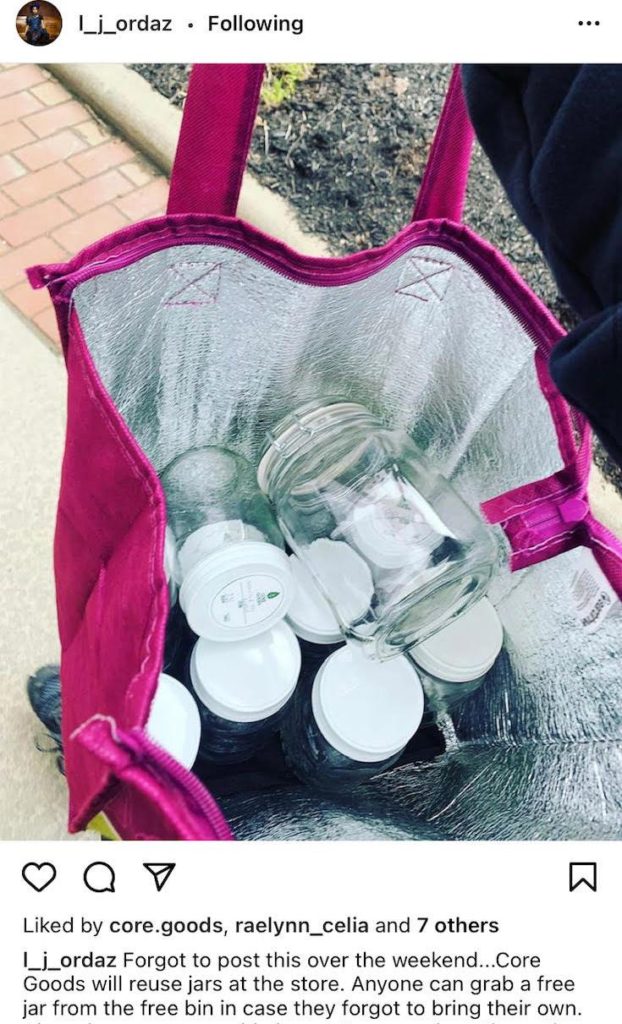
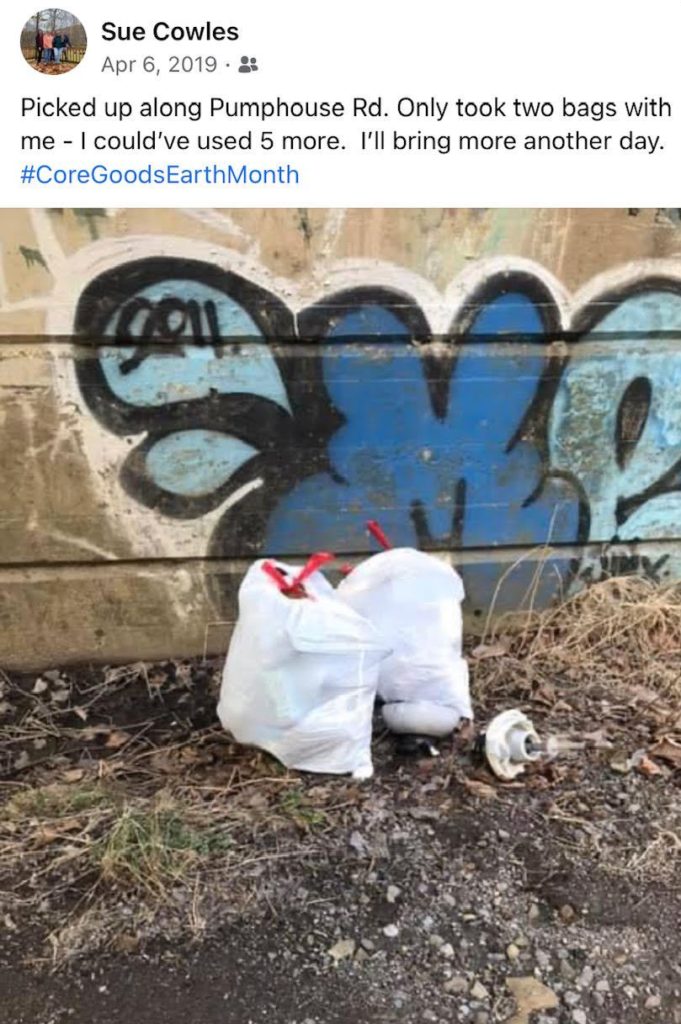
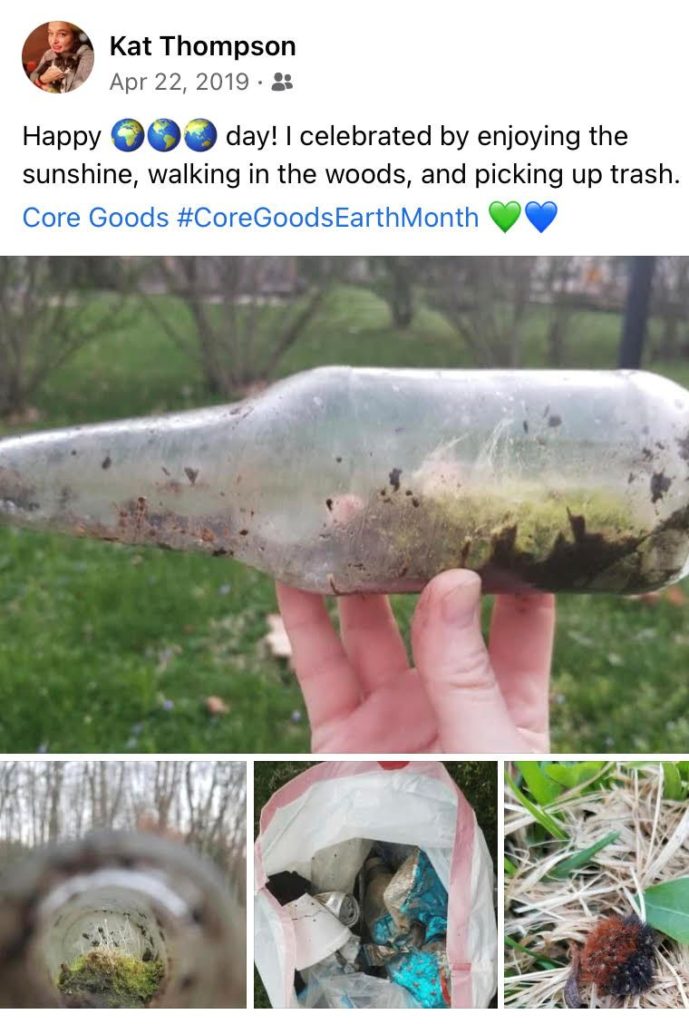
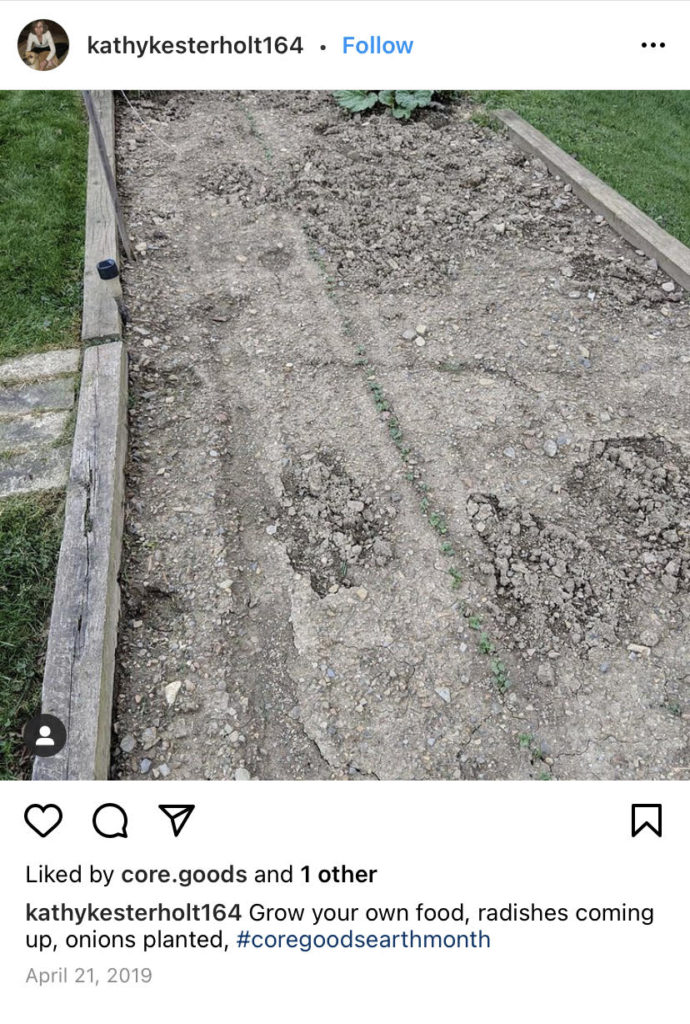
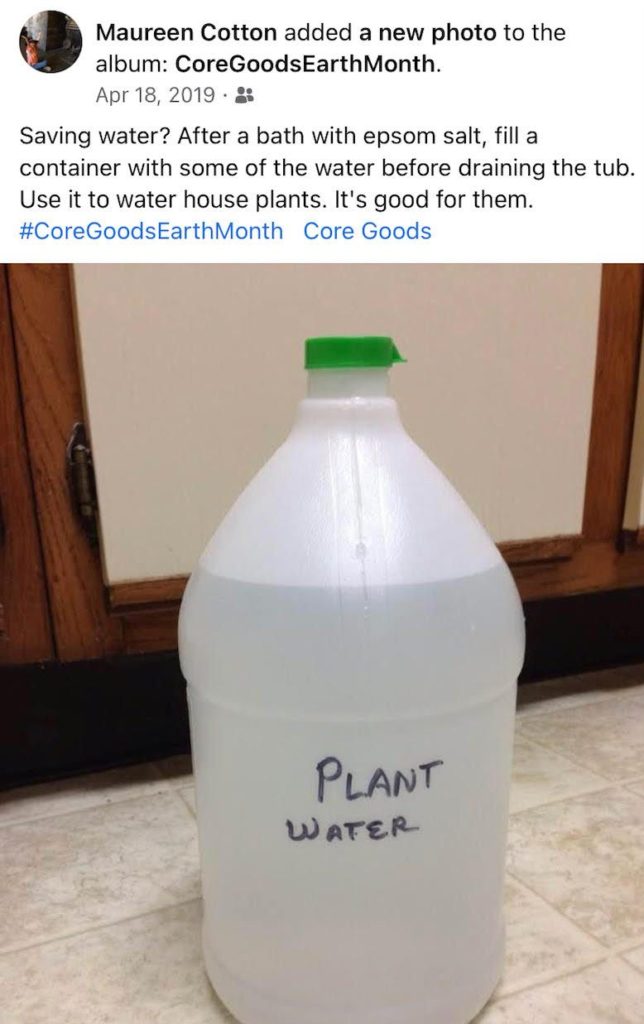
We can’t wait to see your Earth Contest posts! Remember to tag us and use the hashtag #CoreGoodsEarthContest.


